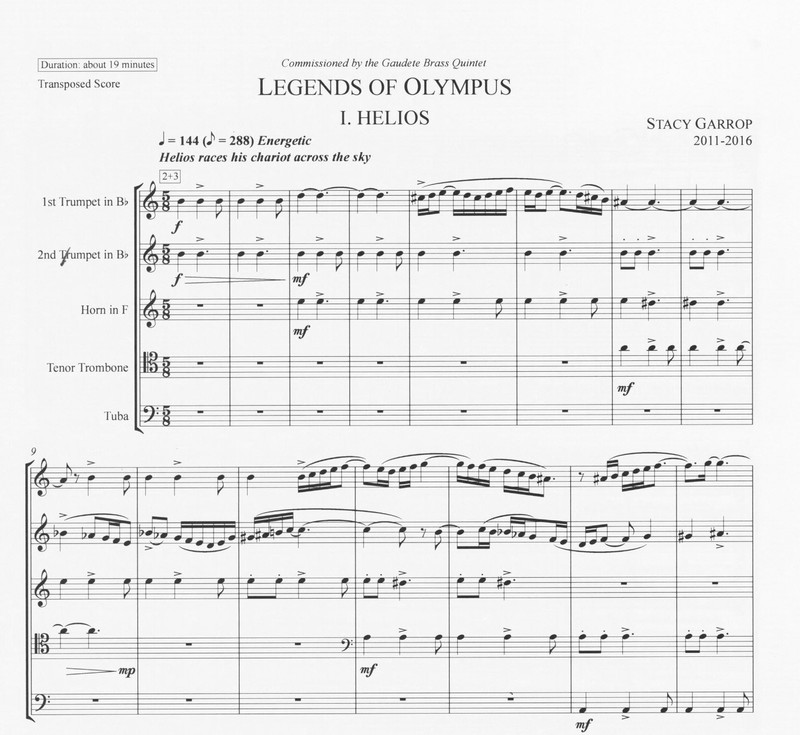Legends of Olympus
Item
-
Score title
-
Legends of Olympus
-
Composer
-
Stacy Garrop
-
Program note
-
In ancient Greek mythology, Mount Olympus is the dwelling place of the gods and goddesses. Legends of Olympus depicts five of these deities.
Helios is the god of the sun. His head is wreathed in light, and he drives a chariot drawn by four horses across the sky each day. In some tales, these horses are winged; in others, they are made of fire. At the end of each day’s journey, Helios sleeps in a golden boat that carries him on the Okeanos, a freshwater river that encircles the flat earth. Before dawn, the boat brings him back to his palace on Mount Olympus to collect his horses and chariot. Then he starts the journey again.
Aphrodite is the goddess of love and beauty. She was born from the sea and brought ashore on a wave of foam. She carries herself with the regal bearing of a queen. Each year, her beauty is replenished when she dives into the sea once more.
Hermes is a merry and mischievous young god with a sharp wit. Zeus, his father, appointed Hermes as the messenger between the inhabitants of Olympus and the people on earth. Hermes goes about his errands wearing golden shoes and cap, both adorned by a pair of wings.
Apollo is the god of music. His brother, Hermes, once played a trick on him by stealing all of Apollo’s cows. To appease Apollo’s anger, Hermes crafted a golden lyre. Apollo was so entranced with this stringed instrument that he traded his entire herd of cows to Hermes for it. In this movement, we hear Apollo picking up his lyre for the first time and strumming it. The brass quintet serves as the lyre, working together to represent the instrument.
Dionysus is the god of the grape harvest, wine, and revelry. He carries a pine-cone tipped staff and wears a crown of ivy leaves. He spends his time teaching mortals the craft of growing grapes and making wine. In this movement, Dionysus arrives at a party bearing wine. The party gets more and more frenzied as the partiers drink and dance the night away.
Helios was published as a standalone work and can be checked out separately from UMKC Libraries.
 Stacy Garrop
Stacy Garrop

